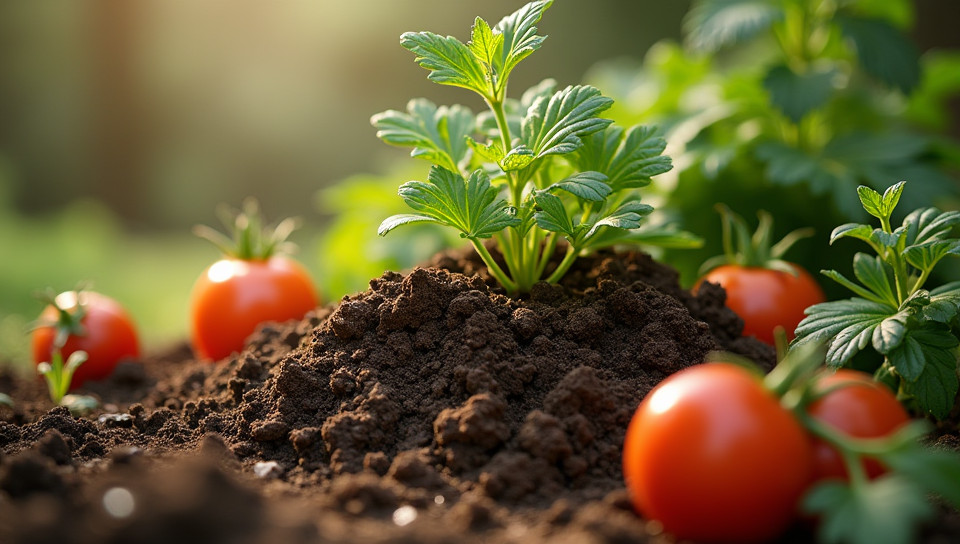Food scraps can be composted quickly 73%

The Forgotten Secret to Reducing Waste: Composting Food Scraps
As we continue to navigate the complexities of living sustainably, it's easy to overlook one of the simplest and most effective solutions: composting food scraps. This often-overlooked practice not only reduces our environmental footprint but also turns kitchen waste into a valuable resource for our gardens.
The Benefits of Composting Food Scraps
Composting food scraps is a win-win situation for both our planet and our gardens. By reducing the amount of waste that ends up in landfills, we lower greenhouse gas emissions and prevent the production of methane, a potent climate pollutant. Additionally, composted food scraps act as a natural fertilizer, promoting healthy plant growth and soil structure.
What Can Be Composted?
- Fruits and vegetables peels
- Bread and grains
- Eggshells
- Coffee grounds
- Tea bags
- Leftover cooked foods (avoid meat and dairy)
The Quick Composting Process
Composting food scraps is a relatively quick process, taking anywhere from a few weeks to a couple of months. Here's a simple step-by-step guide:
- Collect your scraps: Set aside a designated container for collecting kitchen waste.
- Balance carbon and nitrogen: Aim for a mix of 2/3 brown materials (e.g., dried leaves) and 1/3 green materials (e.g., food scraps).
- Add water: Maintain a moist environment to speed up decomposition.
- Monitor temperature: Compost piles can get hot, reaching temperatures up to 160°F (71°C). Check for heat and turn the pile as needed.
Putting Composting into Practice
By incorporating composting into our daily routine, we not only reduce waste but also create a nutrient-rich soil amendment for our gardens. Whether you have a small herb garden or a large vegetable plot, composting food scraps is an essential step towards sustainable living.
Conclusion
Composting food scraps is a simple yet effective way to reduce our environmental impact and create a valuable resource for our gardens. By following the quick composting process outlined above, we can turn kitchen waste into a powerful tool for promoting healthy plant growth and soil structure. So next time you're about to throw away that banana peel or coffee grounds, remember: it's not waste – it's a chance to give back to the earth.
- Created by: Yuina Chiba
- Created at: Jan. 18, 2025, 11:39 a.m.
- ID: 18092





